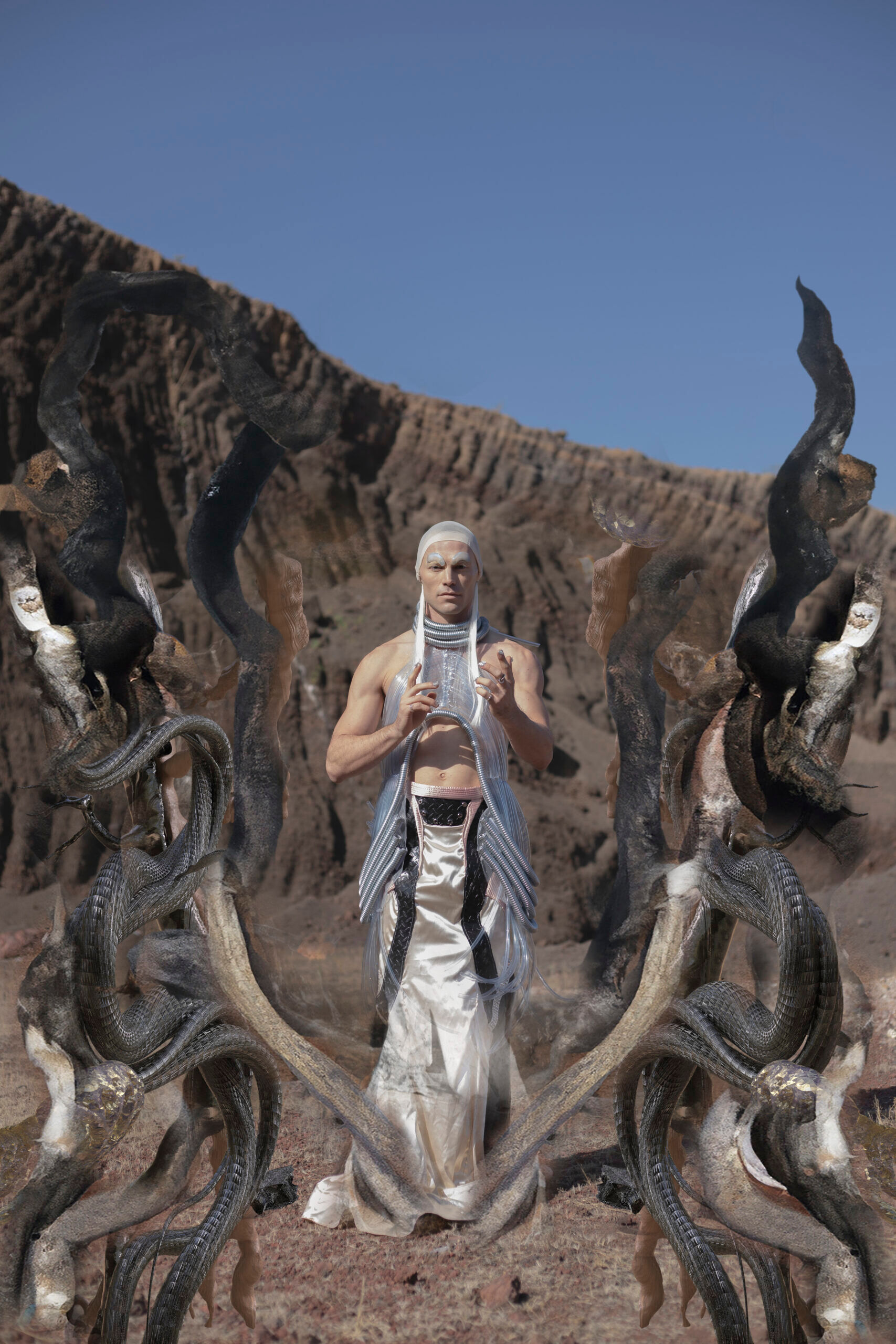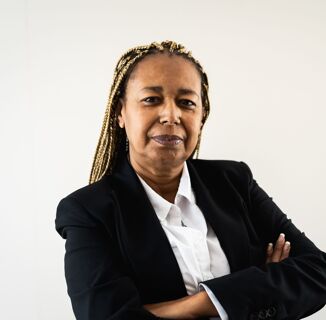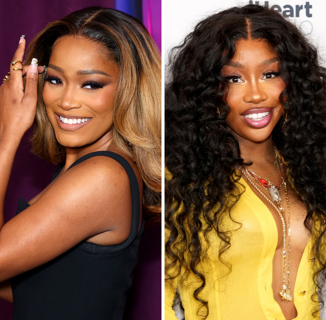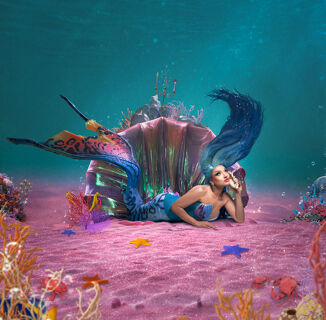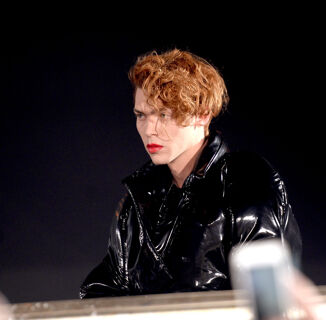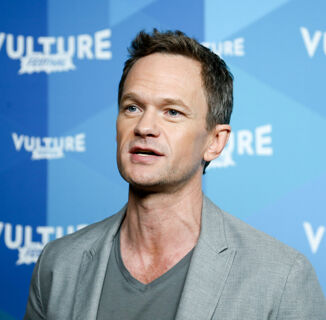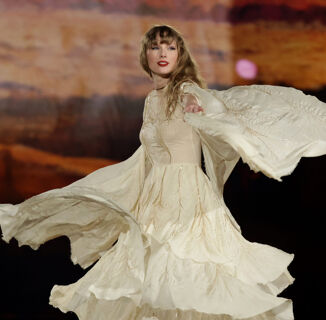Art has always been a medium for expression, raising awareness on various issues, and protest. EYIBRA’s multimedia piece ‘Veles/Тіні’ embodies these three completely. The nonbinary Lithuanian-Ukrainian artist’s latest work explores queer identity in Ukraine and Lithuania, starting from pagan times up to present day.
‘Veles/Тіні,’ Lithuanian/Ukrainian for “spirits of ancestors/specters”. Within their latest work, EYIBRA (f.k.a. Abraham Brody) explores how gender is both ancient and futuristic. With layered audio, which includes traditional folk songs, techno, and electronic music, and visuals, which include the holographic avatars that toy with the idea that EYIBRA, as a nonbinary person, possesses multiple souls, they examine gender through these mediums. Additionally, EYIBRA will pair these with 3D otherworldly landscapes and images of their grandmothers.
While the Veles/Тіні’ includes the rich history of both Lithuania and Ukraine, it also covers the current invasion of Ukraine by Russia. Ukrainian culture, which includes queer Ukrainian culture, is under attack. EYIBRA is using their artistry as not only a form of protest, but also as a means of preservation.
“Given the current political climate, I am deeply afraid that my culture is at risk (quite frankly) of being wiped from the face of the earth,” said EYIBRA. “This project is a powerful way to preserve and reawaken my roots.”
Over two days, EYIBRA’s performance will take place at BRIC Arts Media. The Brooklyn-based nonprofit named EYIBRA one of their 2022-2023 BRIClab artists-in-residence last September. And with collaborative support from Oswaldo Erreve (visuals), Liana Zhen Ai (movement direction), and Vanebon, Weijing Xiao, and DZHUS (designers), EYIBRA’s piece will come to life at BRIC.
INTO spoke with EYIBRA on their upcoming presentation of their piece ‘Veles/Тіні’, how they’re using their art to preserve Ukrainian culture, and what they hope audiences take away from their work.
Your new multimedia piece, ‘Veles/Тіні’ explores queer identity in Ukraine and Lithuania from pagan times up to the present. What was the inspiration behind this piece?
I felt this existential threat to my culture, to my roots, to an ancient tradition that predates Russia itself, that predates the patriarchy and the church… these ritual songs are connected to a divine femininity, traditionally sung only by women. They represent a different vision of the world – one that is a polar opposite to the current toxic masculinity represented by the leader of Russia. I wanted to find my own way to interact with these roots, bringing them into the context of a queer framework, using 3D visuals, electronic music, and movement. There is grief, mourning, but also strength, resilience and joy in the piece.
Folk, electronic, and techno arguably have queer roots, in what ways are you able to highlight queerness within your work with these genres?
In the sense of the folk roots, as mentioned the songs I am working with at the beginning of the piece are pre-Christian ritual songs that offer a non-patriarchal and perhaps queer outlook into our past. The rest of the music in the piece is very electronic, experimental, and beat-heavy. I feel that all of these genres are dominated and find their origin in the queer community and in queer artists themselves. I am thinking of incredible pioneering queer/trans artists and producers such as Sophie, ANOHNI, Arca, Lyra Pramuk. There are so many.
Russia’s invasion of Ukraine has become an affront to Ukrainian culture, which includes queer Ukrainian culture. In what ways are you using your art to preserve it as well as bring attention to Russia’s invasion of Ukraine?
I am passionate about interacting with the Ukrainian queer community and supporting them also as a member of the Ukrainian diaspora. For me, the Russian state and Putin are synonymous to oppression, suppression, and erasure of the LGBTQ+ community. I am deeply interested in investigating the thread that connects queerness with our roots as a sovereign, independent Ukraine, that has its own unique language, history, music, and culture.
“Queer” literally means “other”. I want to use my art to reflect on Ukraine as “other” (i.e., absolutely and unconditionally NOT a part of Russia). “Other” or “queer” in the sense of a nation that has its own powerful identity beginning centuries ago, as well as into the future. As a second generation Ukrainian, I feel my roots more than ever. If anything, the invasion has galvanized and united the international Ukrainian diaspora worldwide more than ever.
For me, it is very important to bring attention to Russia’s colonial history in the context of the ongoing debate right now. Russia has been a colonizer state for centuries – not to mention Eastern European nations such as Ukraine and Lithuania. For centuries, Russia also systematically colonized, oppressed, and ethnically cleansed all of Siberia (which still is and was inhabited by Asian and Indigenous groups for centuries), Central Asia (Kazakhstan, Uzbekistan, Tajikistan, and more), and parts of the Middle East (Chechnya, Dagestan, Afghanistan).
“Queer” literally means “other”. I want to use my art to reflect on Ukraine as “other.’
EYIBRA
They have attempted to ‘Russify’ all of these countries, destroying languages, cultures, any non-Christian religious beliefs, and any ways of life they saw as ‘uncivilized’ (which also include the LGBTQ+ community, of course). I think this is very important to mention as the Russian state has and continues to commit these atrocities on people of almost all races and religions across the globe and it needs to be taken into consideration, in my opinion, during debates on colonialism.
What do you hope audiences take away from learning about the queer history of Ukraine and Lithuania within your piece?
I hope they will be reminded of the ancient roots of both of these nations. Both Lithuania and Ukraine have distinct origins and languages, which are much older than the Russian nation. I hope the piece will cause them to reflect on and consider that almost every pre-Christian culture has queer elements in its origins that offer, perhaps, a future also grounded in a different outlook. I hope they will remember the war is still not over and that Ukrainians and also queer Ukrainians are fighting and dying every hour, every day, defending not only Ukraine, but also democracy, tolerance, freedom of speech, and freedom of expression.
‘Veles/Тіні’ premieres at BRIC on March 16 and 17.♦
Help make sure LGBTQ+ stories are being told...
We can't rely on mainstream media to tell our stories. That's why we don't lock our articles behind a paywall. Will you support our mission with a contribution today?
Cancel anytime · Proudly LGBTQ+ owned and operated
Read More in Culture
The Latest on INTO
Subscribe to get a twice-weekly dose of queer news, updates, and insights from the INTO team.
in Your Inbox

